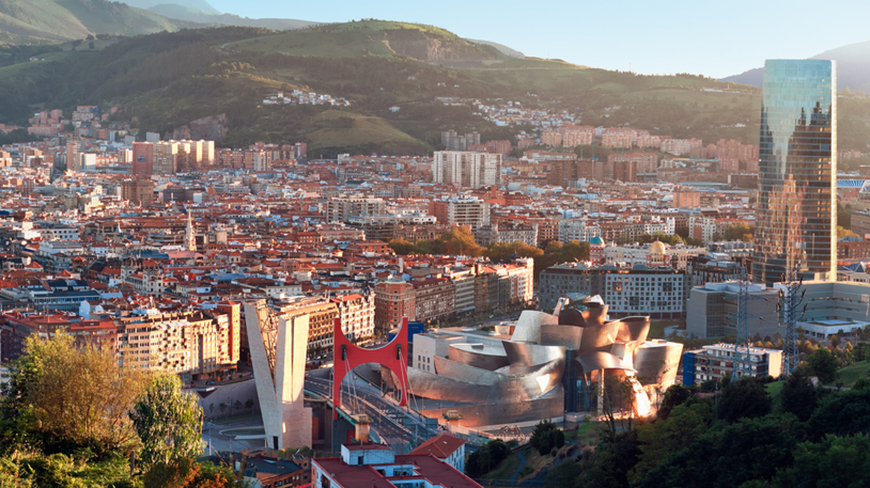Purpose:
The III Bilbao Intercultural City Plan aims to guide public policies, from an intercultural perspective, in order to strengthen social cohesion and urban development in the city. To this end, the City Council intends to initiate and continue a series of public initiatives (policies, actions and instruments) with the common objective of continuing to make progress in the construction of an intercultural Bilbao, in which diversity is managed intelligently and efficiently, making the most of its advantages.
Rationale:
Aware of its diversity as well as of the need to manage it intelligently and creatively in order to strengthen social cohesion and promote economic development without losing its identity, the Bilbao City Council has developed successive intercultural plans to realise the diversity advantage. In 2011, it approved the 1st Municipal Plan for the Management of Bi-Open Diversity, and in 2017, the 2nd Municipal Plan for Citizenship and Diversity. The third and current one builds on the thorough evaluation of previous experience thanks, among others, to the ICC Index.
The 3rd Intercultural City Plan is well aligned with the Municipal Mandate Plan, the Bilbao Charter of Values and the European Charter for the Safeguarding of Human Rights in the City, and takes the 2030 Sustainable Development Goals (SDGs) as a reference framework. It is also directly linked to the conceptual and operational framework of the Intercultural Cities Programme and to the work of the Council of Europe Committee of Experts on Intercultural Integration of Migrants.
Furthermore, it is a Plan that establishes a model of diversity management based on interculturality, i.e., on the principles of real equality, diversity advantage, positive interaction, and sense of belonging. It is not meant to remain declarative: on the contrary, it is deployed in concrete actions that apply these principles in the different areas of municipal intervention.
Process:
Evaluation of the 2nd Plan
The evaluation of the 2nd plan has been carried out in a participatory manner, involving the city departments, the civil society, and the residents of the different neighborhoods, with special emphasis on the contribution of the Local Immigration Council (CLI).
The main conclusions were positive, both for what concerns the design of the Plan and its implementation, with 76% of the actions foreseen fully achieved. The flexibility of the plan was particularly praised, especially considering its capacity to adapt to the circumstances of the COVID-19 pandemic.
Room for improvement concerned social and citizen participation and a more coherent and transversal coordination of policies.
This new Plan represents a continuity of the actions included in the previous phase because they have been recognised as valid and relevant in the evaluation carried out. At the same time, it adds new actions to reinforce the strategic development of Bilbao as an Intercultural City.
The 3rd Plan: a roadmap emphasising the advantages of transversality
The goal pursued by the City Council with the implementation of this new Intercultural City Plan is to enhance integration, citizens coexistence and societal cohesion, by interventions in all public policy areas. The Plan therefore provides a framework for cross-departmental action, and contains a common local strategy for the articulation of public policies that favour coexistence and social cohesion in diversity, based on the consensus and participation of all the sectors involved.
It is conceived as a working document that can evolve and adapt through time.
The 3rd Bilbao ICP is divided into 10 mainstream areas and 6 sectorial areas of intervention, with a total of 83 actions focusing on four priorities:
- welcoming policies,
- awareness-raising and social impact,
- intervention with migrant groups with greater social vulnerability,
- participation and interaction.
The mainstream areas set a shared framework for the development of general local policies and actions; the sectoral areas incorporate the intercultural lens into existing lines of work, thus enabling the advantages of diversity and the principles of inclusion to be promoted.
Among the 83 actions proposed for implementation of the Plan, 12 of them stand out as strategic actions due to their impact and scope:
- The setting up of “inter-areas” political and technical monitoring commissions for the continuous evaluation of the ICP;
- Strengthening the Local Immigration Council and its participation in local spaces and activities;
- An Intercultural Training Plan for municipal staff, to enhance their intercultural competence;
- Strengthening the city participation in both the ICC international network and the RECI (Spanish network of intercultural cities);
- Implementation of the Bilbao Intercultural City communication strategy;
- Setting up of a multilingual online resource guide;
- Intervention with young people without family references;
- Implementation of the Women's Health and Violence Programme;
- Continuation of the anti-Rumour social awareness-raising strategy;
- Public actions to commemorate internationally recognised days;
- An Intercultural Awareness Programme to be implemented in the school environment;
- and the “Auzoak Abian” intercultural community intervention project carried out in Errekalde.
It is worth mentioning that the new plan further incorporates gender equality as one of its cross-cutting perspectives, taking into account the specific characteristics of women of foreign origin and their risk of suffering multiple discrimination. For this reason, a gender impact assessment report has been produced prior to the preparation of the ICP.
Key reference documents:




